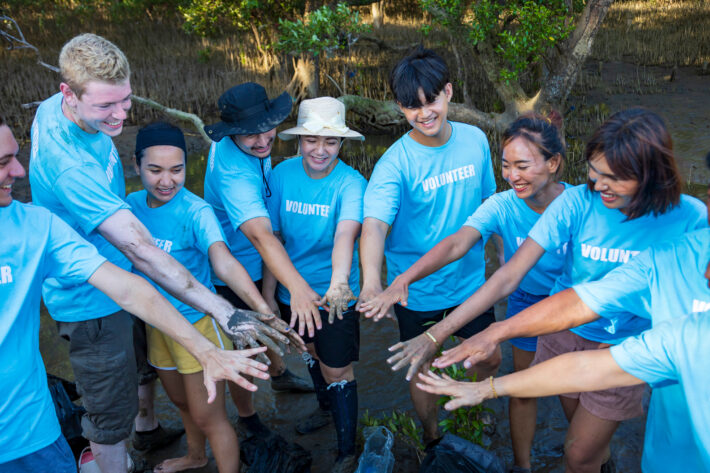Supporting Mental Health for Migrants and Their Children: Strategies and Resources

This topic will discuss the unique mental health challenges faced by migrants and their children, including stress, anxiety, and adjustment issues. Offer strategies for coping and provide information on available mental health resources and support services in Australia. Highlight the importance of mental well-being and how your charity can offer support in this area.
Migrating to a new country can be an exhilarating yet mentally exhausting experience. Especially for children, the process of settling into a new environment often comes with various mental health challenges. From culture shock, language barriers, and the stress of adapting to new social norms, the journey to new opportunities and new friends can be hard. They can trigger feelings of anxiety, stress, and isolation. Addressing mental health is often overlooked, but is a very real part of the migration journey.
You and your children can face somewhat unique mental health challenges including:
- Complete culture shock: Every country is vastly different and adjusting to a new culture, new language, and different traditions can be overwhelming, especially for children. The struggle to adapt is real to most, and unfamiliar school systems, social behaviors, and food can leave children stressed and vulnerable.
- Isolation from loved ones: Most immigrants are leaving behind friends and extended family members. Your new start can lead to feelings of isolation and loneliness. You may feel disconnected from your support networks and long for the familiarity of your home country.
- Language Barriers: If you can’t communicate, this will compound the feeling of isolation. Limited spoken and written English can make daily tasks like seeking medical help, job searching, or even socialising far more difficult.
- The hidden pressures: You may feel pressure to succeed in your new country, particularly in areas like employment or education. This added pressure that you place on yourself can increase stress levels and lead to burnout. This is seen particularly for children who feel they must perform well in school.
- Discrimination and Racism: Unfortunately, you may encounter prejudice or discrimination, which can contribute to feelings of exclusion, anxiety, and depression.
Mental Health Challenges, specifically in Migrant Children
Children of migrants often face a unique set of challenges. While they are typically more adaptable to new environments than adults, the stress of migration can still take a toll on their mental health:
- Struggles with identity: Children may struggle with balancing two cultures—their family’s culture that they have grown up with, and the new Australian culture that they are living. This can lead to confusion, identity issues, and a pressure to fit in with peers to make new friends.
- Language and Academic Stress: Children who are not fluent in English may face difficulties in school, leading to feelings of frustration, inferiority, and stress.
- Role Reversal: In some cases, children may take on adult responsibilities as they adapt and learn quicker. This may be as simple as translating for their parents or helping them navigate the new country. Unfortunately, this role reversal can be emotionally draining and lead to anxiety and stress.
Strategies for Coping with Mental Health Challenges
There are definitaely some strategies that can help ease and navigate the process in a healthy way:
- Look for Social Support: Building a support network quickly, with like minded people can help manage stress and anxiety. Engaging with local community groups, cultural associations, or religious organisations can help you and your families feel connected. Social interaction can reduce feelings of isolation and provide emotional support.
- Open Communication: For families, open communication is crucial. Encouraging your children to express their emotions can help them feel heard and supported. It will also help you understand the unique challenges they are facing. Parents and children should regularly discuss their feelings, challenges, and fears about adjusting to the new environment.
- Create and keep a routine: Stability is key, it removes one form of stress that isn’t needed. Setting a daily routine can provide a great sense of stability and predictability. This, in turn, can help both you and your children feel more in control and reduce anxiety.
- Embrace Cultural Identity: Australia is truly multi-cultural; and there is no need for you to abandon your beliefs. Instead, you should continue to embrace them. Celebrating your traditions and maintaining ties with your heritage can help preserve a sense of identity and provide comfort during difficult times.
- Continue Physical Activity: Exercise is a natural stress-reliever and can improve mood. Families should prioritise physical activities such as walking, sports, or yoga to release tension and promote mental well-being.
- Language skills: Improving your English language skills can alleviate the stress of communication in both social and professional environments. You should take advantage of any language classes offered in your communities. Encouraging children to participate in language programs can also ease their integration into school.
Mental Health Resources and Support Services in Australia
Australia offers a wide range of mental health resources for migrants and their children. Here are some key services that provide support:
- Lifeline: Lifeline is a 24-hour crisis support service that offers confidential support to anyone in emotional distress. Migrants can call Lifeline at 13 11 14 or visit their website for help.
- Beyond Blue: Beyond Blue is a national mental health organization that provides support for anxiety, depression, and other mental health issues. Their website offers resources tailored to migrants, and they have a free 24/7 helpline at 1300 22 4636.
- Multicultural Mental Health Australia (MMHA): MMHA provides information, support, and resources for migrants experiencing mental health challenges. They offer services in multiple languages and cater to culturally diverse communities.
- Navitas Skilled Futures: Navitas offers settlement services that include mental health support and access to resources. Their programs help migrants adjust to life in Australia, offering English classes, counseling, and community support.
- Headspace: Headspace provides mental health services for young people aged 12 to 25. They offer counseling and support for issues such as depression, anxiety, and stress, which can be particularly helpful for migrant children adjusting to a new life.
- Mental Health Services for Refugees and Asylum Seekers: The Australian government offers specialized mental health services for refugees and asylum seekers. These services address the unique trauma and stress faced by this group.
How we can help
We are committed to supporting you and your families as you settle into your new lives in Australia. We understand the unique mental health challenges you are about to face and provide a range of services to assist, including:
- Counseling and Support Services: We offer free and confidential counseling to help migrants manage stress, anxiety, and adjustment issues.
- Community Support Groups: We facilitate support groups where migrants can connect with others going through similar experiences, fostering a sense of belonging.
- Workshops and Educational Programs: Our workshops provide valuable information on mental health, coping strategies, and available resources.
- Children’s Mental Health Programs: We offer tailored support for migrant children, including counseling and group activities designed to ease their transition into Australian life.
We are here to help you prioritise mental well-being and ensure that you and your family have the support you need as you embark on this new chapter in life.


